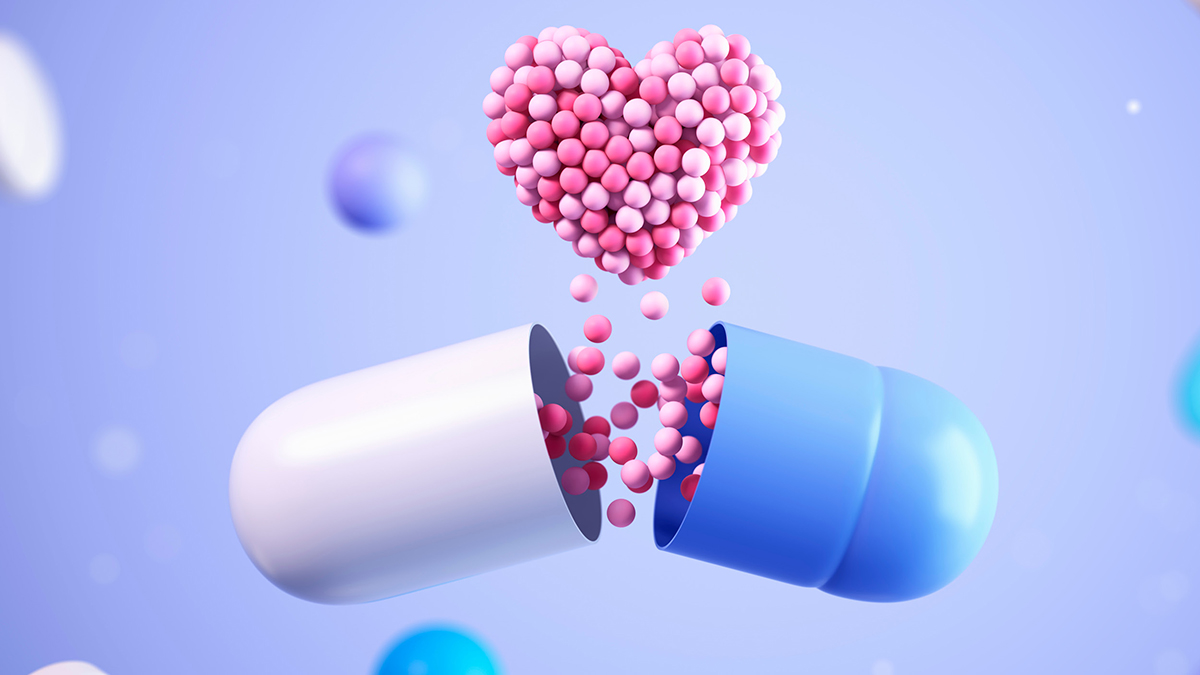Skip to site content

Discontinuance of cardiac medication is a real problem. According to Preventive Medicine Reports, more than 50% of patients who need a statin for hyperlipidemia waver in their dedication to taking the medication. Additionally, these individuals did not inform the prescriber about their lack of commitment.
The American Heart Association (AHA) established clear guidelines for treating acute coronary syndrome. Yet, many patients never begin or cease treatment without notifying their provider. Nonadherence is a potentially fatal concern for cardiac patients. This article explores four key reasons why patients stop their heart medication. This understanding helps clinicians emphasize the importance of continuance and address faulty thinking.
Adequate vascular perfusion is vital for overall health. Hypertension and hyperlipidemia strain the cardiovascular system and cause sluggish blood flow, elevating the risk of heart attack, stroke, and many other conditions.
Physicians should prescribe medications to patients with moderate to high risk of myocardial infarction (MI) or heart disease. However, positive results are not entirely physician-dependent. Adherence is vital to prevent a significant cardiac event.
AHA recommends patients who had an MI take five medications in four pharmaceutical classes:
Many of these medications reduce heart contractility, cardiac workload and blood pressure. Some help mobilize cholesterol or platelets to improve blood flow and oxygenation. These medications help prevent heart attacks and reduce the patient’s risk of stroke.
Discontinuance rates vary by class. However, CLTs, specifically statins, are among the most common drugs susceptible to discontinuance. This information indicates that various reasons underlie patients’ nonadherence to cardiac medications.
Statins decrease the plasma levels of low-density lipoprotein (LDL) cholesterol and total cholesterol. The reduction of LDL significantly lowers patients’ risk of a subsequent MI or stroke. Yet, adherence to statins is subpar at best. Reports indicate that 52% of patients will discontinue statin use prematurely.
Primary nonadherence is the act of not filling a recently prescribed medication. In the United States, this occurs 20% of the time with statins. A survey that explored primary nonadherence to statins found that 28.3% did not know they had cardiovascular disease (CVD). Interestingly, 43% of nonadherence cases fill the prescription but never take the first pill.
Attitudes and beliefs affect actions. Many patients stop taking vital heart-health medication without informing their provider. Understanding a patient’s mindset helps physicians address concerns and improve adherence. But why do so many people refuse to take their cardiac meds?
The most common reason why patients stop their heart medication is the side effects. These unwanted symptoms hinder 27.2% of patients from taking their medication. Common side effects that impact discontinuance rates are the following:
These side effects impact the quality of life, causing people to doubt the benefits. However, CVD is a silent killer. People often only see its negative impact once it is too late. A heart attack or stroke is frequently the wake-up call that something must change. Addressing the side effects and providing solutions helps reduce annoyances that cause discontinuance.
The knowledge barrier is another reason why patients stop their medication. Many do not understand the seriousness of discontinuing heart-related medications. They dismiss the risk of thrombosis and death. Others are unaware of how long they should take the medication.
Major cardiac events cause a rush of emotions. Fear motivates action and urgency. However, when the threat dissipates, so goes the urgency for action. Many patients begin taking the prescribed medication after a cardiac event. The symptoms improve. They feel much better. So, they stop taking their medication, assuming their heart disease is resolved.
Pain cessation causes patients to underestimate the threat of heart disease. Whether intentionally or unintentionally, slowly or abruptly, many patients stop taking essential cardiac medications.
People resist taking a daily medication that causes unwanted side effects. That is why 26.6% prefer trying lifestyle changes before taking statins. Additionally, 16.8% want first to try natural remedies and dietary supplements. Some common alternative therapies are fish oil, fiber supplements or coenzyme Q10. Rather than use medication while improving healthy habits, many favor exploring lifestyle changes:
More than half of patients prescribed statins believe they will become addicted. This faulty belief causes resistance to this intervention.
In the United States alone, cardiovascular disease causes almost a million deaths. With pharmaceutical intervention and lifestyle modification, heart attack and stroke prevention improve. Yet, primary nonadherence is a real threat for patients with CVD.
We understand the tensions physicians face. We want to support your clinical care and reinforce patient education. Check us out at <Facility website> or click the “Refer” button to begin collaborating.
“2023 Heart Disease and Stroke Statistics Update Fact Sheet.” American Heart Association, 2023, 2023-Statistics-At-A-Glance-final_1_17_23.pdf.
“Primary nonadherence to statin medications: Survey of patient perspectives.” Preventive Medicine Reports, 2021, Primary nonadherence to statin medications: Survey of patient perspectives – ScienceDirect.
“Adherence to statins and its impact on clinical outcomes: a retrospective population-based study in China.” BMC Cardiovascular Disorders, 2020, Adherence to statins and its impact on clinical outcomes: a retrospective population-based study in China | BMC Cardiovascular Disorders.
“Exploring Patients’ Reasons for Discontinuance of Heart Medications.” NIH: National Library of Medicine, 2012, Exploring Patients’ Reasons for Discontinuance of Heart Medications – PMC.
Subscribe to our MEDforum e-newsletter for the latest guidelines and information from Up Health.